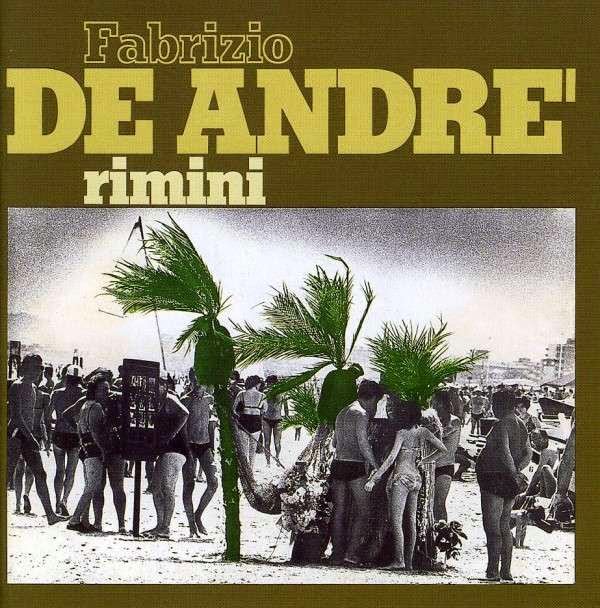|
Andrea s'è perso s'è perso e non sa tornare Andrea s'è perso s'è perso e non sa tornare Andrea aveva un amore Riccioli neri Andrea aveva un dolore Riccioli neri. C'era scritto sul foglio ch'era morto sulla bandiera C'era scritto e la firma era d'oro era firma di re Ucciso sui monti di Trento dalla mitraglia. Ucciso sui monti di Trento dalla mitraglia. Occhi di bosco contadino del regno profilo francese Occhi di bosco soldato del regno profilo francese E Andrea l'ha perso ha perso l'amore la perla più rara E Andrea ha in bocca ha in bocca un dolore la perla più scura. Andrea cogliava raccoglieva violette ai bordi del pozzo Andrea gettava Riccioli neri nel cerchio del pozzo Il secchio gli disse gli disse - Signore il pozzo è profondo più fondo del fondo degli occhi della Notte del Pianto. Lui disse - Mi basta mi basta che sia più profondo di me. Lui disse - Mi basta mi basta che sia più profondo di me. Andrea © 1978 Fabrizio De André/Massimo Bubola "Andrea" is both an anti-war song and a statement of solidarity with and acceptance of gays, as the song is about the love between two men (Andrea is a man's name in Italian). The setting for the song is World War I, which can be deduced because intense battles occurred on the ground in the mountains of Trent during WWI, whereas in WWII Trent suffered bombing from the air by the Germans toward the end of the war. |
Andrea got lost, he got lost and doesn't know how to return. Andrea got lost, he got lost and doesn't know how to return. Andrea used to have a love, black curly hair, Andrea used to have a sorrow, black curly hair. It was written on a page that he'd died on the flag. It was written and the signature was in gold, it was signed by the king: killed in the mountains of Trent by machine gun fire, killed in the mountains of Trent by machine gun fire. Forest-colored eyes, peasant of the realm, French profile. Forest-colored eyes, soldier of the realm, French profile. And Andrea lost him, he lost his love, the pearl most rare. And Andrea has in his mouth, he has in his mouth a sorrow, the darkest pearl. Andrea was plucking, he was gathering violets at the edges of a well. Andrea was throwing black ringlets in the circle of the well. The bucket said to him, it said, “Sir, the well is deep, deeper than the depth of the eyes of the Night of Tears.” He said, “It’s enough for me, it's good enough that it’s deeper than I am.” He said, “It’s enough for me, it's good enough that it’s deeper than I am.” English translation © 2014 Dennis Criteser Rimini grew out of De André's disappointments with the political events of the previous couple of years. In close collaboration with Massimo Bubola, a young 24-year-old who had just released his first album, De André explored several social and political themes, including abortion, homosexuality, and how the petite bourgeoisie attempted to move into the ranks of the powerful and rise above the political and social turmoil of the times. The music has more influence from American rock and pop music than previous albums, and includes his first forays into ethnic music, which will eventually come to full fruition in his masterpiece album Crêuza de mä. |
Fabrizio De André, the revered Italian singer/songwriter, created a deep and enduring body of work over the course of his career from the 1960s through the 1990s. With these translations I have tried to render his words into an English that reads naturally without straying too far from the Italian. The translations decipher De André's lyrics without trying to preserve rhyme schemes or to make the resulting English lyric work with the melody of the song.
Tuesday, August 5, 2014
Rimini:
Andrea
Subscribe to:
Post Comments (Atom)


No comments:
Post a Comment
Thanks for your comment and input. In order to keep the site clean, I don't post comments, but if you're interested in connecting with me I can be reached at dieselcats@email.com.